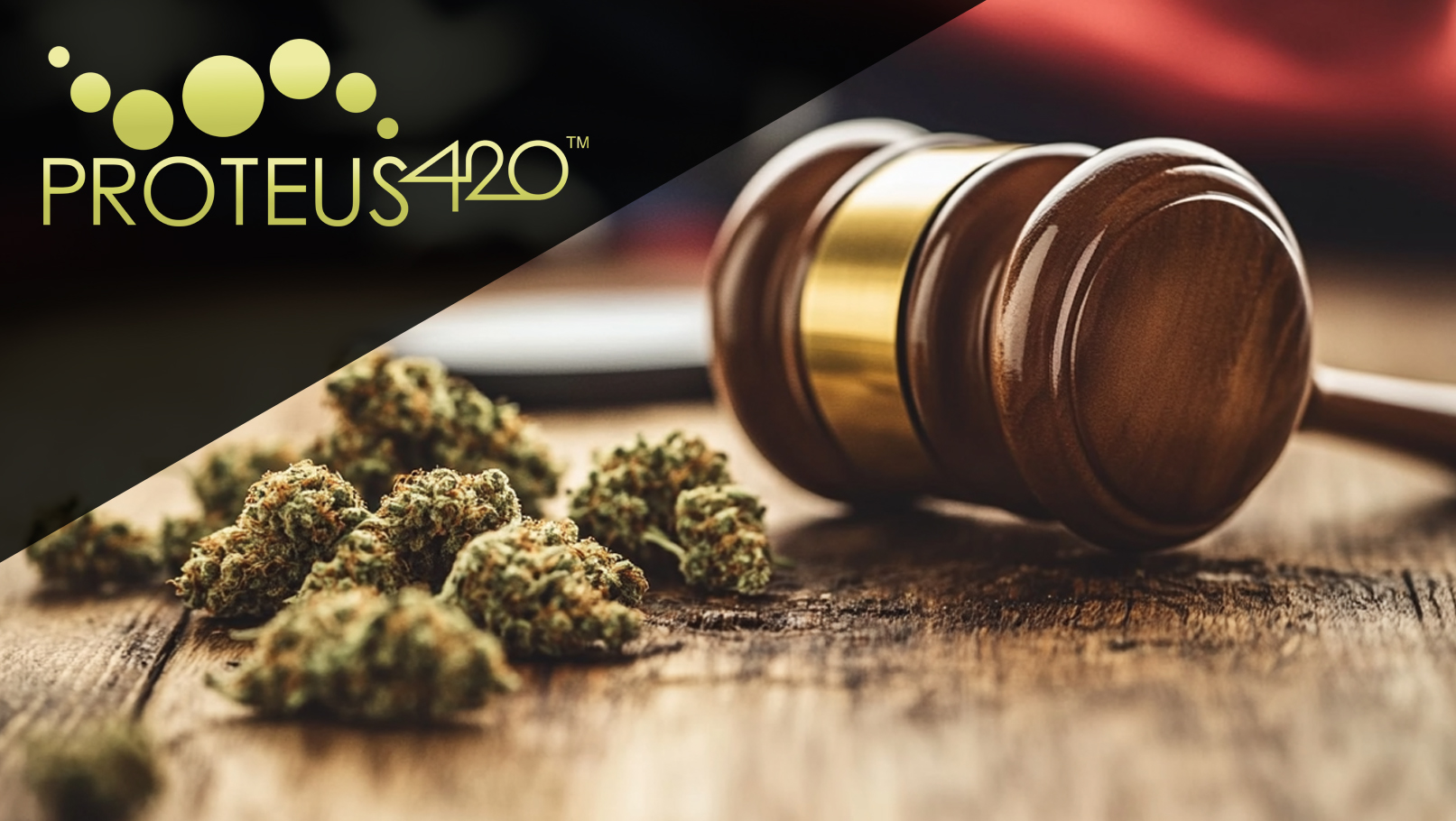STOP THE DEEP HATE: The Truth About 280E & The War on Cannabis Businesses

STOP THE DEEP HATE: The Truth About 280E & The War on Cannabis Businesses
The Government Wants Your Taxes—But Not Your Rights
The cannabis industry is under attack. Again.
For years, we've fought for legitimacy, compliance, and fairness—only to be met with barriers at every turn. Now, a new threat emerges from U.S. Senators James Lankford and Pete Ricketts: The No Deductions for Marijuana Businesses Act seeks to permanently block cannabis companies from claiming tax deductions, even if cannabis is reclassified as a Schedule 3 drug. In short? The federal government is saying:
- You must pay taxes, but you get NO tax breaks.
- You must comply with federal tax law, but you're still treated as a criminal.
- We want your money—but not your industry.
It's hypocrisy at its finest. And the cannabis industry needs to stand up and fight back.

Understanding 280E: The Tax Code That Kills Businesses
For those unfamiliar, Section 280E of the Internal Revenue Code is a relic of the 1980s, designed to prevent illegal drug traffickers from deducting business expenses. Because cannabis is still federally illegal, legitimate, tax-paying cannabis businesses are forced to pay taxes on gross revenue instead of net profit—often leading to effective tax rates of 70% or higher.
Now, with the potential rescheduling of cannabis to Schedule 3, logic would suggest that cannabis businesses should be freed from this outdated tax burden. But instead, this new legislation aims to lock in the punitive treatment, ensuring cannabis remains an industry that the government profits from—without offering any relief to the businesses that fuel it.

What This Means for Cannabis Entrepreneurs
Higher Costs, Lower Survival Rates – With 280E deductions permanently banned, small cannabis businesses will face crushing financial burdens. Many will be forced to shut down, leaving the industry to be monopolized by deep-pocketed corporate interests.
Job Losses & Economic Devastation – Cannabis is a $30+ billion industry that supports over 400,000 jobs. Keeping 280E intact threatens job security and economic growth in states that depend on tax revenue from the industry.
Unfair Double Standards – If cannabis is reclassified as a Schedule 3 substance, why should it still be treated worse than pharmaceutical companies selling opioids? The hypocrisy is clear: cannabis businesses are targeted not because they're harmful, but because they're easy revenue streams for the government.

This is Deep Hate—And It Must End
This isn't about public safety. It's not about regulation. This is a calculated financial attack on an industry that is already overburdened, overregulated, and overtaxed.
So, what can we do?
- Contact Your Representatives – Demand they oppose this legislation. Tell them the cannabis industry deserves tax fairness.
- Support Cannabis Advocacy Groups – Organizations like NORML, NCIA, and MPP are fighting on the front lines. They need our voices and financial support.
- Educate Your Community – Many people don't realize how cannabis businesses are unfairly taxed. Share this information, talk about 280E, and make sure people understand how these laws hurt everyone—not just business owners.
- Use Your Vote – Elections have consequences. Politicians who support the cannabis industry need to be elected, and those who don't should be held accountable at the ballot box.
Time to End the Hypocrisy
The government wants our taxes but not our success.
They want cannabis revenue but not cannabis rights.
They pretend to support legalization but continue to strangle small businesses.
This is DEEP HATE against the cannabis industry, and it's time we demand change.
Making 280E Work for the Cannabis Industry: A Strategic Approach
While Section 280E is fundamentally flawed for the legal cannabis industry, there are ways to mitigate its damage while we push for broader reform. Here's how cannabis businesses can navigate, and even leverage, the current tax structure to survive and thrive under these harsh conditions.
1. Advocate for Legislative Reform with a Middle Ground Approach
Instead of outright repealing 280E—which is unlikely given the resistance in Congress—we can push for revisions that recognize state-legal cannabis businesses as distinct from illegal drug traffickers. Some proposals include:
- Carveouts for State-Compliant Businesses – Amending 280E to exempt licensed and compliant cannabis businesses from its restrictions, rather than treating them like criminal enterprises.
- Tax Credits for Compliance & Safety – Implementing federal tax credits for businesses investing in security, compliance software, employee training, and sustainability initiatives.
- Gradual Phase-Out Approach – A transition plan that reduces the burden of 280E over time, especially as federal legalization inches forward.
2. Maximize Cost of Goods Sold (COGS) Deductions
Under 280E, cannabis businesses cannot deduct common expenses like rent, marketing, and administrative costs. However, they can deduct Cost of Goods Sold (COGS)—which includes direct costs tied to production.
For Cultivators & Manufacturers:
- Seed-to-sale tracking software fees (if tied to inventory)
- Cultivation supplies, raw materials, packaging costs
- Direct labor costs tied to growing, harvesting, processing
For Retailers & Dispensaries:
- Inventory purchase costs
- Transportation of product to the store (if state law allows deductions)
- Employee wages for those directly handling inventory
Strategy: Structuring business operations to allocate more expenses into COGS can help reduce taxable income under 280E.

3. Separate Business Entities for Non-Cannabis Revenue
A common strategy is to create multiple business entities—one that deals strictly with cannabis sales (subject to 280E) and another that provides non-plant-touching services like:
- Merchandise & Apparel (T-shirts, accessories, branded gear)
- Consulting & Education (Workshops, cannabis business training)
- Technology Services (Software licensing, payment processing)
- Wellness & CBD (Non-THC products that are federally legal)
This allows the second business to deduct expenses that would be disallowed under 280E if run under the same entity. Important: This must be done with strict legal separation to avoid IRS scrutiny.
4. Push for State-Level Relief Programs
Since federal tax relief isn't currently an option, cannabis business owners should push for state-level tax deductions, credits, and grants to offset 280E's impact. Some ideas:
- State Tax Deductions – States like Colorado, Oregon, and California already allow cannabis businesses to deduct expenses on state tax returns, easing the federal burden. More states should follow.
- Equity Grants for Impacted Businesses – Using tax revenue from cannabis sales to fund programs that provide capital & tax relief to small and minority-owned cannabis businesses.
- Municipal Incentives – Local governments offering property tax relief or discounted business licensing fees to help offset the tax burden.
5. Leverage Banking & Financial Planning Strategies
Many cannabis businesses overpay in taxes due to poor financial structuring. To counteract 280E:
- Work with Cannabis-Savvy CPAs – Experts can help allocate expenses properly, optimize tax filings, and stay compliant.
- Utilize Cost Segregation Studies – For dispensaries and facilities, this can accelerate depreciation on real estate, reducing taxable income.
- Explore Banking Solutions – Cannabis-friendly credit unions can help with financial structuring that minimizes unnecessary tax burdens.
6. Legal Challenges: Pressure Congress & Courts
Cannabis businesses, industry groups, and legal experts must keep challenging 280E through litigation. The Harborside Case proved that the IRS is willing to enforce 280E aggressively, but future lawsuits could open cracks in its application.
- Strategic Goal: Establish legal precedents where state-legal businesses are treated differently than illicit drug enterprises.
- Target Areas: Challenging the overreach of federal taxation on businesses that are fully compliant under state laws.
The Path Forward
Yes, 280E is a crippling tax code that unfairly punishes legal cannabis businesses—but it also presents an opportunity to push for smarter, incremental reforms while adopting strategies to minimize its impact.
- Short-Term Survival: Maximize COGS deductions, separate business entities, and push for state-level relief.
- Long-Term Change: Demand congressional action, challenge 280E in court, and continue pushing for federal banking & taxation reform.
The industry must unite and fight back. This isn't just about taxes—it's about fairness, economic opportunity, and the future of cannabis.
Call to Action: Join advocacy groups, support cannabis-friendly policymakers, and educate others about how 280E hurts legal businesses while benefiting the federal government.
Let's make 280E work for us—or better yet, end it once and for all.


